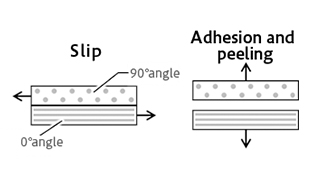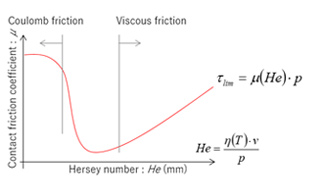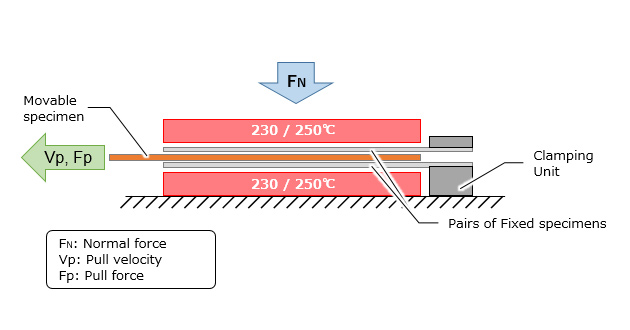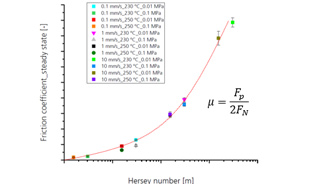Model accounting for interlaminar friction
When modelling the forming of a multi-layer pre-preg, in order to accurately predict forming defects, such as wrinkles, it is important to represent not only the in-plane and out-of-plane material properties, but also the interlaminar sliding resistance.
Use Cases Highlights
- Wrinkles occur between fiber of differing materials
- High accuracy of wrinkles can be predicted.
Contact options for composite materials
- Interfacial normal direction: Account for adhesion and peeling behavior - Interfacial section line direction: Define pressure, velocity, and temperature dependent friction

Pre-preg state and interlaminar behavior during forming process & Friction model using Hersey number

Friction model using Hersey number
Interlaminar friction test
By importing sliding test results, users can create a model which accounts for the normal pressure, pull velocity and temperature dependent sliding resistance.

Illustration of interlaminar friction coefficient measurement test

Measurement result: Friction coefficient vs. Hersey number

